Manene Festival, during which the people of Toraja dig up the bodies of their deceased relatives
Categories: Holidays and Festivals | Nations
By Pictolic https://mail.pictolic.com/article/manene-festival-during-which-the-people-of-toraja-dig-up-the-bodies-of-their-deceased-relatives.htmlOn the Indonesian island of Sulawesi, the people of Toraja live, who conduct a very peculiar ritual.
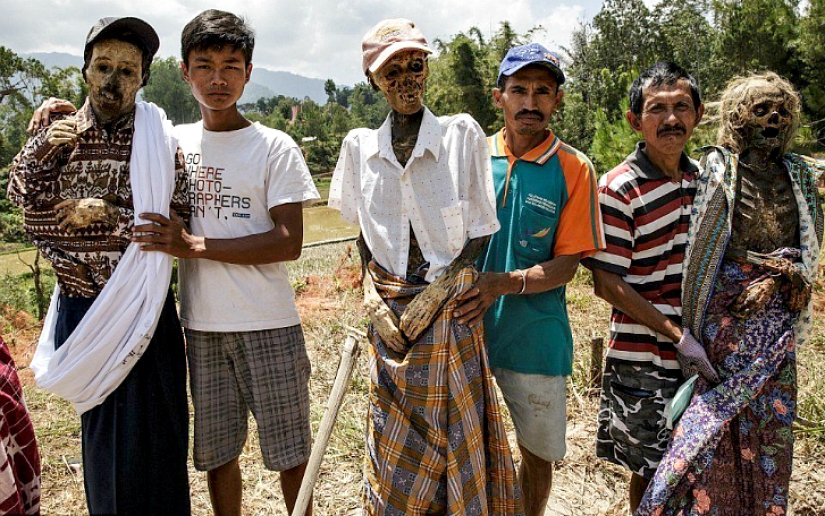
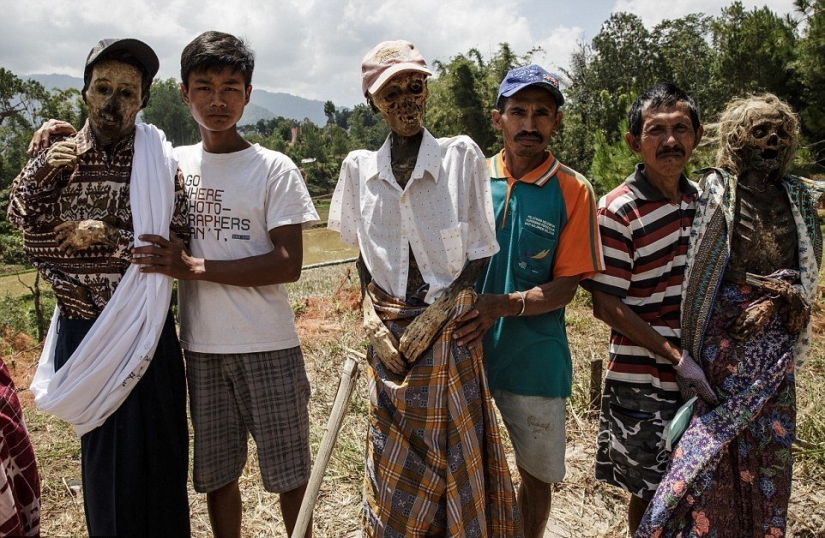
Every three years, representatives of the Toraja dig up the bodies of their deceased relatives for the Manene ceremony.
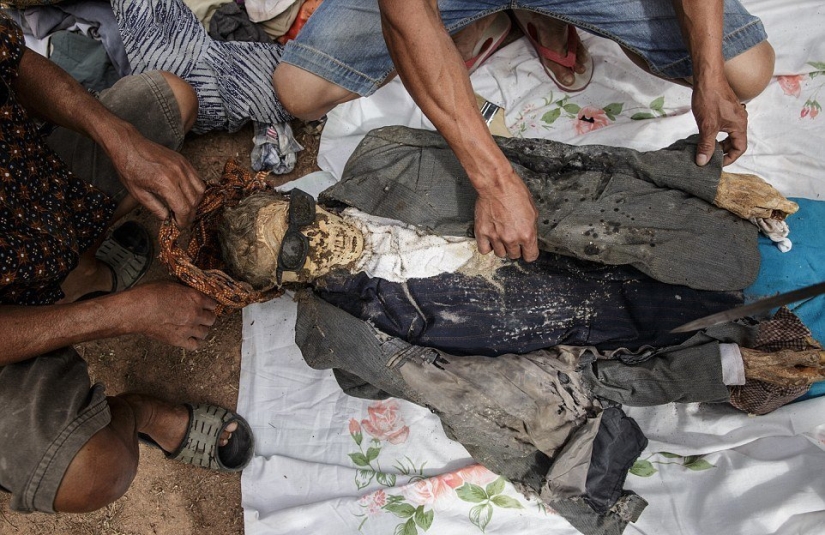
The name of the festival "Manene" translates as "the ceremony of cleansing the bodies of the dead." The body of the deceased is exhumed and dressed up in beautiful clothes. This ritual emphasizes the close connection between the world of the living and the dead.
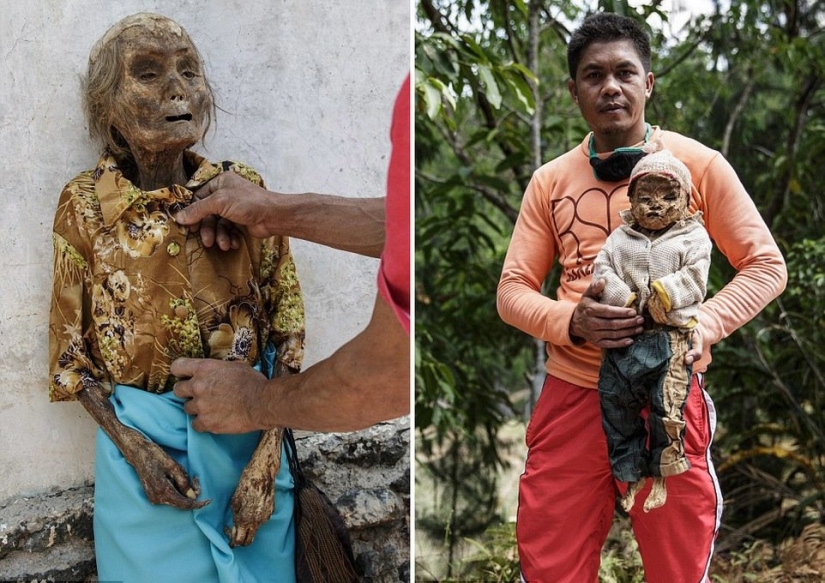
The body of the deceased Nek Tosai in a beautiful decoration before the Manene Festival (left). Ari Titus holds the body of his brother Jeffrey, who died as a child.
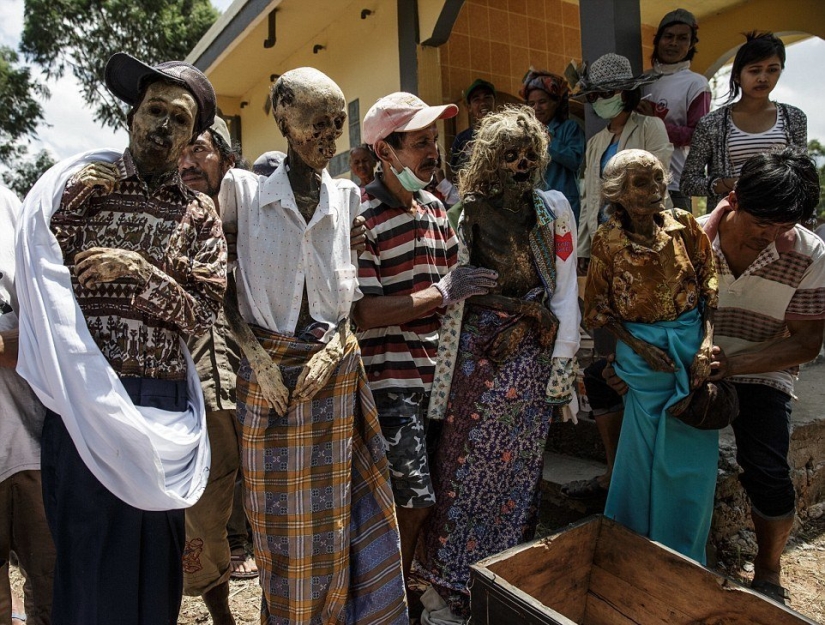
Funerals are one of the most important and expensive events in the life of the community. Toraja's people have been saving up for a decent funeral all their lives.
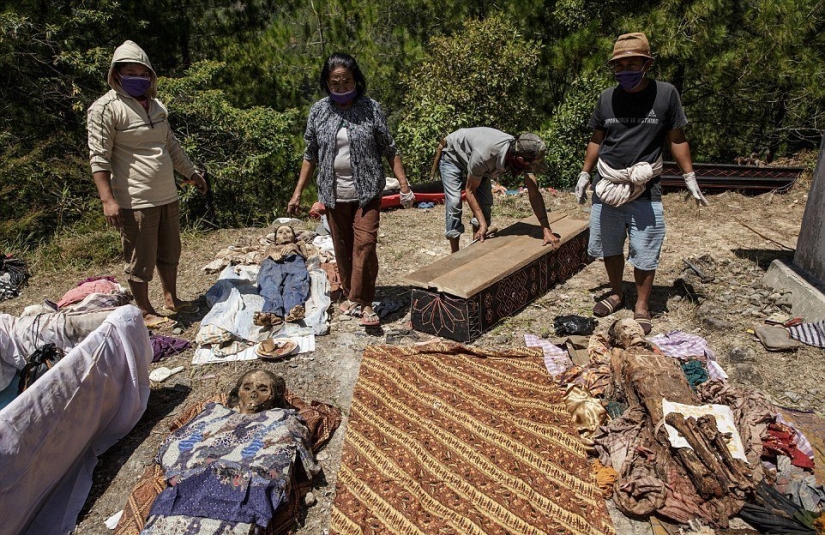
During the Manene ceremony, the torajas dry the mummies of three deceased relatives, and then clean them and dress them in new clothes.
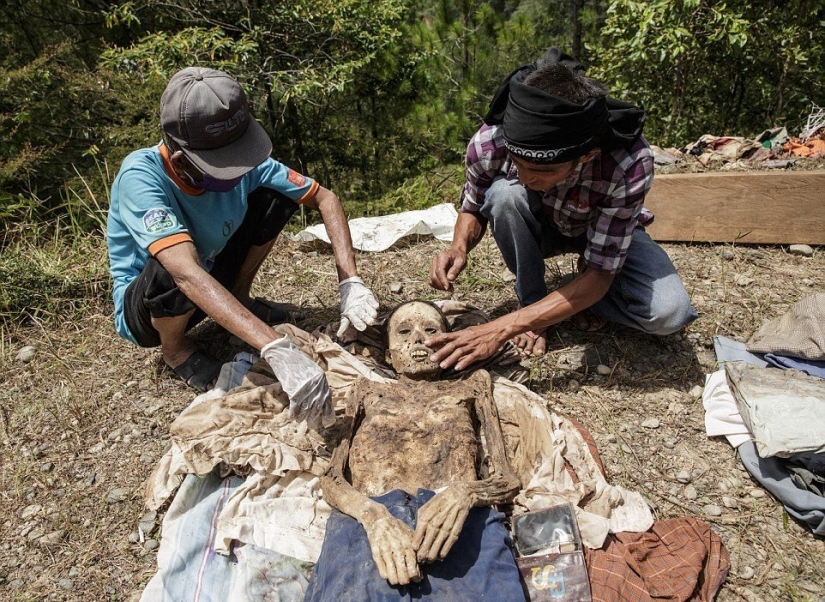
At the beginning of the funeral, the torajas slaughter a buffalo or bull and place the horns near their relative's house. The more horns decorate the family home, the higher the social status of the deceased.
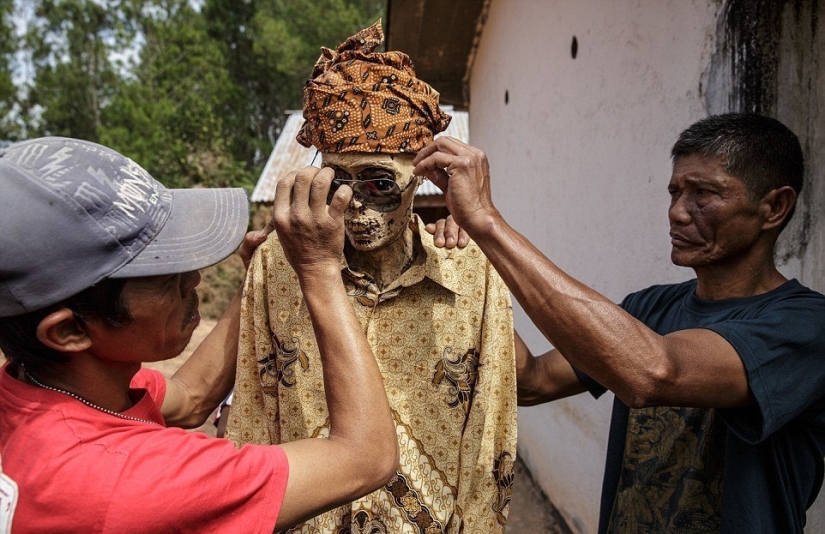
The Tyrande family puts sunglasses on their deceased relative during the Manene ritual, which is held every three years in the village of Pangala.
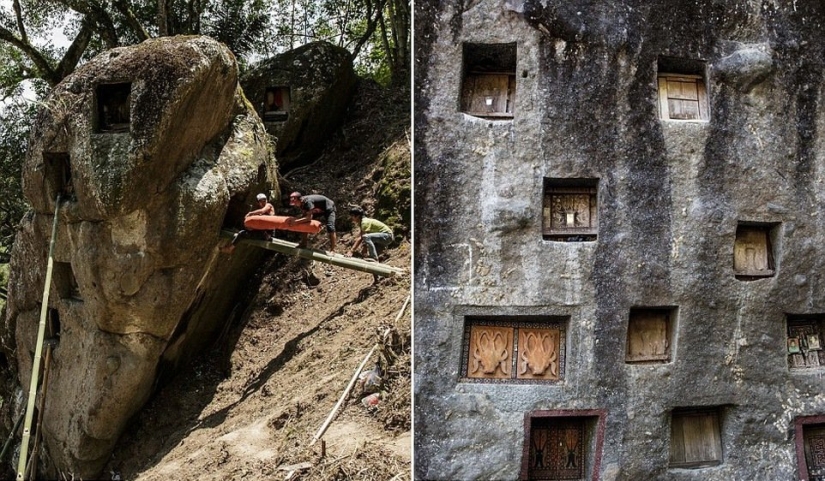
At the end of the ceremony, the body is placed in a stone cave in the rock (left). From this moment, the soul of the deceased begins its journey to the other world. The coffins are in the graves (on the right) and are removed from there before the Manene Festival.
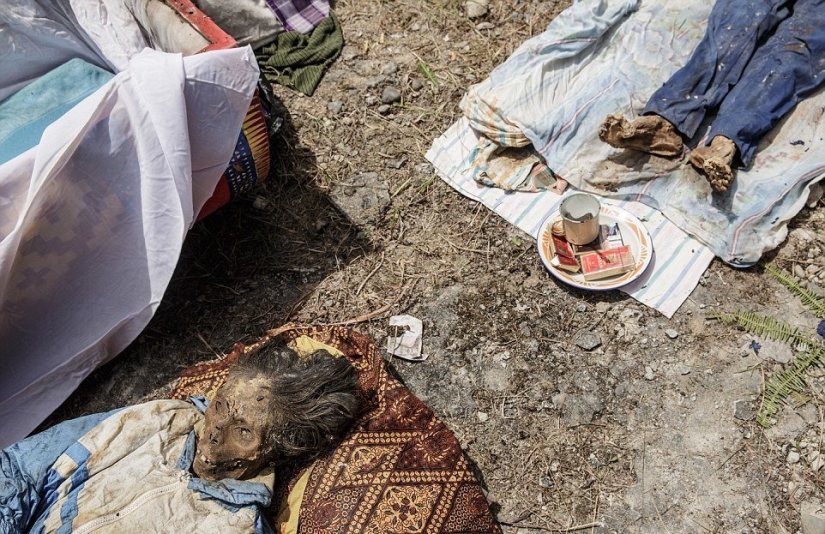
The deceased is called "sick" or "asleep" because the Toraj consider them alive until the funeral.
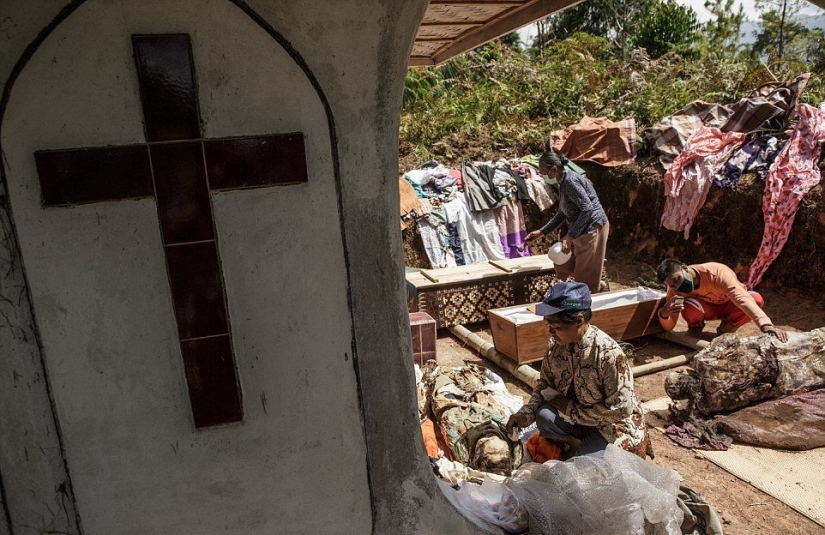
Torajas bury their relatives where they have lived most of their lives or died. Deviation from this tradition causes disagreements in families. For example, there are cases when spouses wish to be buried nearby and thus put their partner above blood ties.
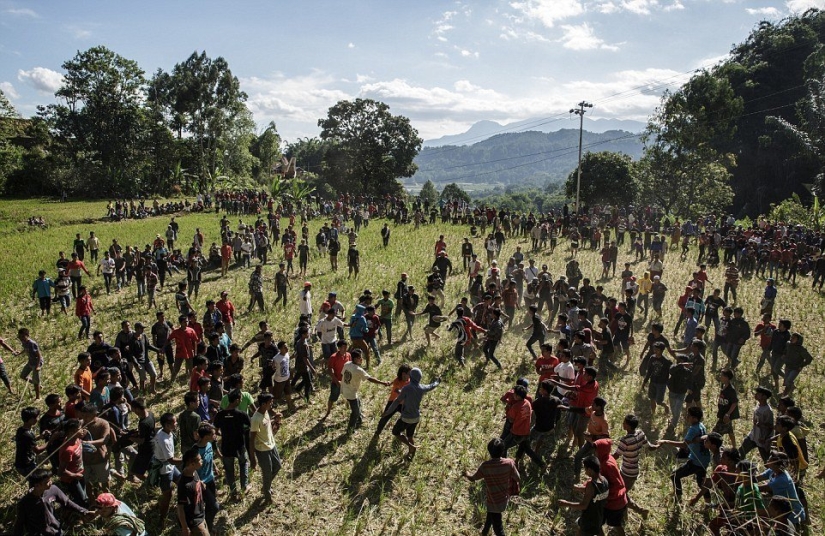
Torajian men perform the sesemba ritual in a village on the island of Sulawesi, Indonesia. Burial often takes place several years after death, so the family of the deceased has enough time to prepare a magnificent funeral.
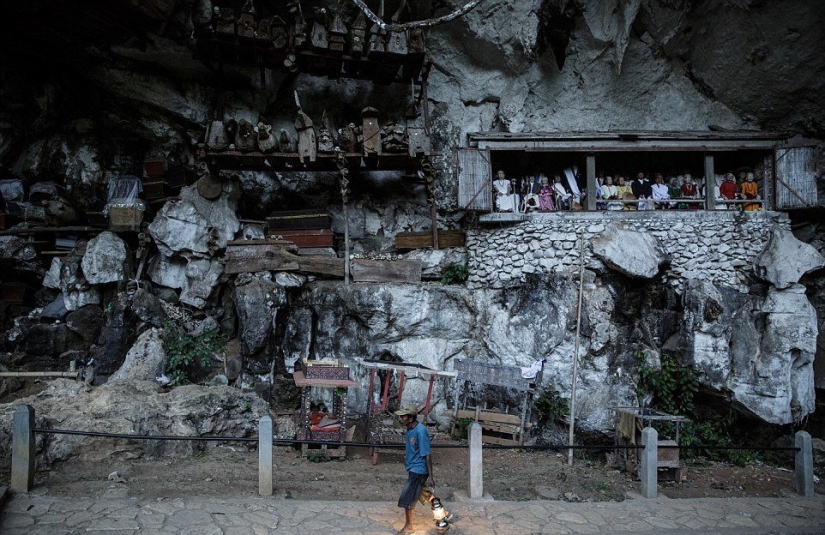
The photographer was told the story of how a Torajian man named Pong Rumasek found the body of the deceased under a tree while hunting in the mountains. Rumasek dressed him in his own clothes and buried him with all the honors. The hunter believes that this will bring him well-being.
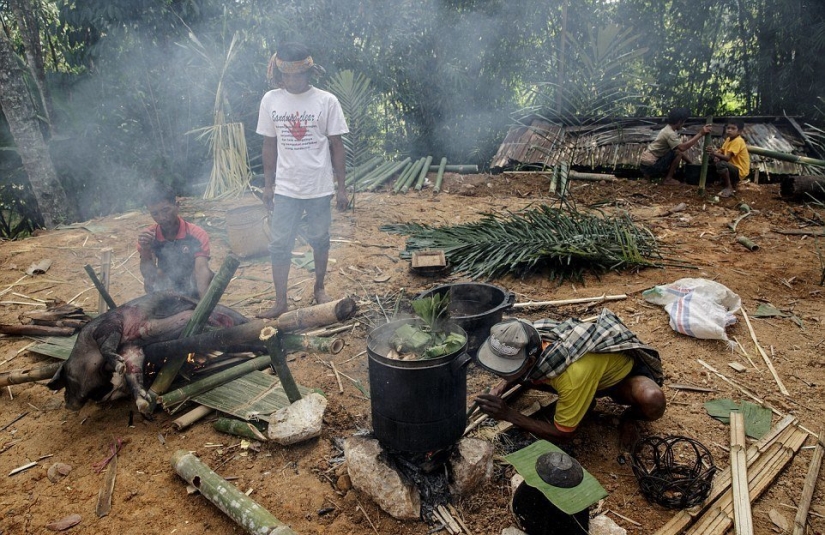
Torajian men cook wild boar in the traditional way on bamboo sticks before the Manene Festival.
Keywords: Indonesia | Rite | Ritual | Rituals | Relatives | Skeletons | Death | Traditions | Corpses | Ceremony
Post News ArticleRecent articles

It's high time to admit that this whole hipster idea has gone too far. The concept has become so popular that even restaurants have ...

There is a perception that people only use 10% of their brain potential. But the heroes of our review, apparently, found a way to ...
Related articles

It's amazing, but there are still places on our planet where holiness is not an empty phrase, and in order to achieve it, people ...

It's hard to let go of loved ones who go to another world. The memory of them remains forever in our hearts, but it is no longer ...

Among people creative and imaginative has always been a lot of mystics. Fortunately, these days are not threatened by the fire of ...

New Year's is a time to surprise and delight loved ones not only with gifts but also with a unique presentation of the holiday ...